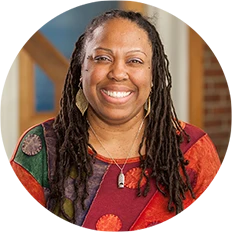Earlier this year, I had the opportunity to participate in a Teaching Tolerance workshop entitled Social Justice 101. Before I share what I learned, it’s important to note that the word tolerance often gives many of us pause as we seek out resources to support the creation of diverse, inclusive and equitable learning spaces and experiences. The word tolerate means to allow the existence, occurrence or practice of something that one doesn’t necessarily like or agree with without interference, or to accept or endure someone or something unpleasant or disliked with forbearance. When we think of what it means to genuinely create a sense of belonging in schools, we want students to be valued, embraced, celebrated, and invested in, not tolerated. For this reason, Teaching Tolerance is exploring changing their name.
The day began with a native land acknowledgment which gives honor to the original occupants and caretakers of the land on which we convened. This is a practice I would like to incorporate as well, and my friend Claudia Fox Tree has encouraged me to ensure that if I do, I should also provide participants with resources with which they can deepen their understanding about First Nations so that the land acknowledgement is not just something to check off on a list of things to do in a session. We all need opportunities to go beyond the false narratives we’ve learned about First Nations, and to unerase Indigenous People by confronting settler-colonialism. Engaging in our own learning and incorporating authentic land acknowledgements is a great place to begin.
When we introduced ourselves to the other participants at our tables, we were encouraged to include our pronouns. As someone coming from a place of cisgender privilege, I have truly appreciated these reminders and supports about opportunities to ensure that everyone can show up in a space as their whole selves without having to shape-shift.
We also explored Community Agreements at the beginning of the workshop. This was a shift away from reviewing norms in the way workshops and collaborative spaces have typically opened in my experience. I noticed a similar shift at the Multicultural Teaching Institute I attended this summer as well. Words are important, and unpacking the rationale behind imposing what may be normal for one group of people on another group of people is critical work.
During the rest of the workshop, we unpacked the following essential questions through the frame of the Teaching Tolerance Social Justice Standards:
- How do identity and culture influence the work we do with students and colleagues?
- How can schools affirm identity, celebrate diversity, teach justice and inspire action among students?
In addition to exploring these essential questions about ourselves and our work, we spent time discussing Rudine Sims Bishop’s concept of Windows and Mirrors. We had the opportunity to identify our own mirrors, which is an experience I highly recommend. Reflecting on my mirrors as a Black American woman from Brooklyn, baby of the family, wildly in love with my husband of 22 years, mother of teens, dog-lover who grew up in a cult (a long story for another time . . .) and loves to harmonize, but is terrified of karaoke, was nostalgic, inspiring and reaffirming. Having the experience of identifying my own mirrors reminded me of the importance of students and families identifying their own mirrors instead of educators trying to define them without student/family input.
We explored the Critical Practices for Anti-Bias Education guide which supports educators to shift practices in instruction, classroom culture, family and community engagement, and teacher leadership through the Social Justice Standards, Perspectives Texts, teaching strategies and student tasks. These resources are broken down into supports for educators at various grade levels.
We also used the Speak Up framework of echoing, educating, interrupting or questioning to work through scenarios about the following:
- How to respond if a parent uses disparaging language about another student.
- How to respond if colleagues celebrate that a certain population of students won’t be returning to the school.
- How to respond when students make a disparaging comment about a group of people during a community service project.
- How to respond when a student makes a harmful comment to another student about part of their identity
We ended the workshop with the facilitators encouraging us to Do Something. We were asked to consider what we will stop doing, what we will continue to do and what we will start doing.
As the Senior Manager of Inclusive and Responsive Educational Practices at BetterLesson, this workshop was an incredible learning experience for me. If you have the opportunity, I would highly encourage you to participate in a Teaching Tolerance workshop or explore the many resources available on the Teaching Tolerance website where you can find free, supportive tools to transform your teaching practices.








